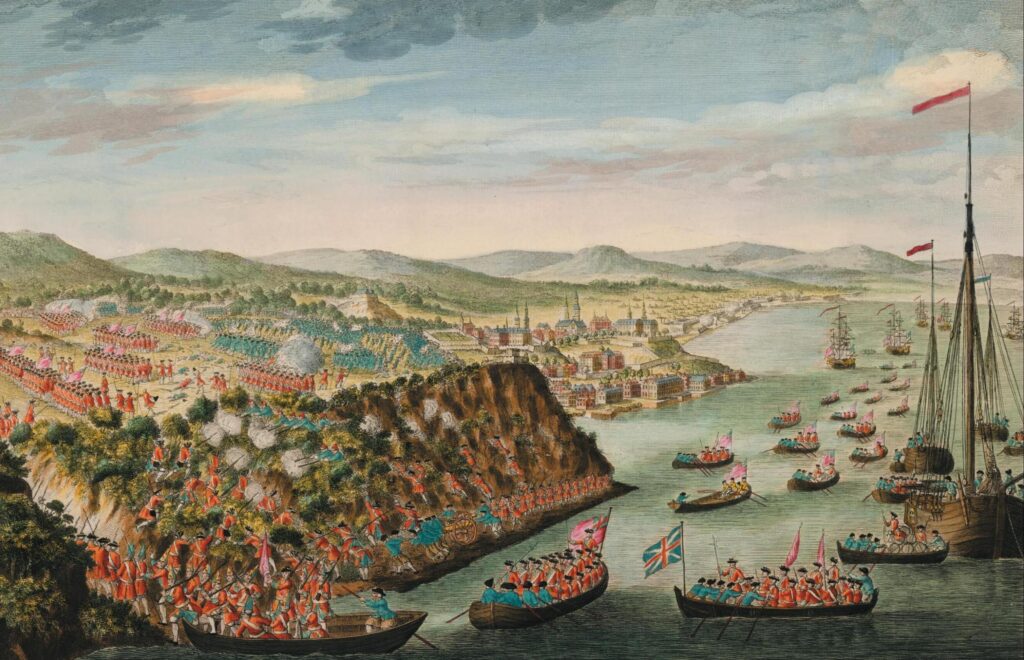1759 The Fate of New France is Sealed

The Battle of the Plains of Abraham occupies an interesting spot in the historical memory of Canadians. One might think that this decisive British victory which led to the virtual end of French rule in North America – absolutist, feudal, and Catholic – and prepared the way for a religiously-plural democracy would be celebrated as a national founding event: the equivalent of the Battle of Yorktown or the Fall of the Bastille. To think that is to underestimate the Canadian propensity for guilt, self-abnegation, and ambiguity.
The Seven Years War was the world’s first global conflict, fought in Europe, the Americas, and Asia, one of those dynastic tiffs that were so common in the 17th and 18th centuries. Those struggles in a minor theatre of operations in the western hemisphere was known (to Americans at least) as the French and Indian War.
For over a century the armies of New France and their native allies had made war on the British colonies and their native allies to the south. The key to defeating New France lay in taking the two main fortresses of Quebec City and Louisbourg on Cape Breton. Louisbourg fell after a scandalously poor defence in 1758 and in 1759 a British army under James Wolfe sailed up the St Lawrence River to lay siege to Quebec. Wolfe conceived of a risky plan whereby a small force would climb a steep and lightly defended path up the cliffs to secure an easier landing spot farther upstream for the entire army.
This worked and the Marquis de Montcalm, the French general, awoke to find an enemy outside the city walls on the Plains of Abraham. He foolishly chose to march out and confront the British forthwith, trusting to his 2 to 1 superiority in numbers. In the ensuing fight both generals were mortally wounded and the French were forced back into Quebec. Montcalm’s successor decided his position was untenable and withdrew leaving the British in command of the city. A French attempt to retake Quebec in 1760 failed.
The 1763 Treaty of Paris ended most of the world-wide fighting and in the negotiations the French were given the choice of retaining Canada or keeping one of their Caribbean sugar islands. Louis XV chose Guadeloupe over (as Voltaire put it) a few acres of snow.
English Canadians were once allowed to sing proudly of this conquest:
In days of yore, from Britain’s shore,
Wolfe, the dauntless hero, came
And planted firm Britannia’s flag
On Canada’s fair domain.
Here may it wave, our boast, our pride
And, joined in love together,
The thistle, shamrock, rose entwine
The Maple Leaf forever!
But a plan to celebrate the 250th anniversary of the battle was met with threats of violence by French-speaking Quebecers and the event was cancelled as smacking too much of triumphalism. The motto of Quebec is “Je me souviens” which seems to translate as “I resent”.